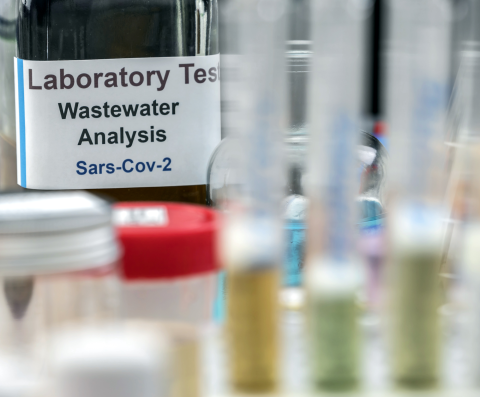With the start of the fall semester, it is a good time to remind ourselves of Georgia Tech’s recent operational shifts to help keep the community as safe as possible while we move from a temporary emergency Covid-19 response into an ongoing, sustainable Covid-19 response. You are encouraged to read all updated guidance at health.gatech.edu/coronavirus.
We continue to recognize that Covid-19 vaccines and boosters offer safe, effective protection and urge all students, faculty, staff, and visitors to get vaccinated and boosted either on campus or at a local provider. Stamps Health Services continues to conduct vaccine clinics for those who are eligible. You can learn more here: health.gatech.edu/coronavirus/vaccine.
As part of Georgia Tech’s continued monitoring of the overall health of the campus community, we have transitioned from individual surveillance testing to wastewater surveillance testing. Over the past 18 months, Georgia Tech’s Covid-19 testing team has validated the use of wastewater testing for Covid-19 detection and has put in place the infrastructure necessary to conduct broad-based wastewater surveillance. As such, Georgia Tech has created new dashboards to track and report the status of wastewater testing as well as symptomatic positives (students only) from Stamps Health Services. The previous dashboard, that has tracked cases since 2020, will be archived but remain publicly available. Access to the new dashboards can be found here: health.gatech.edu/coronavirus/monitoring-covid.
“Many health experts agree that Covid-19 is with us for the foreseeable future, and, while the severity of cases is much less overall, we continue our commitment to track overall trends of the virus in our community,” said Will Smith, director of Emergency Management and Communications for the Georgia Tech Police Department. “We have been exploring the use of wastewater testing during the pandemic, and it has proven to be an effective and reliable method of tracking the prevalence of Covid-19 in our population.”
About Wastewater Testing:
- Wastewater testing, or wastewater-based epidemiology (WBE), is an emerging field used to understand infectious disease transmission and other human health trends evident in sewage or wastewater.
- While wastewater testing has existed for more than 40 years, it has rapidly come to the forefront of disease surveillance with the Covid-19 pandemic.
- Wastewater testing detects and quantifies the presence in sewage of the genome (RNA genetic material) from the virus that causes Covid-19, SARS-CoV-2.
- This data helps identify trends of increasing or decreasing community spread of the virus as well as potential “hotspots.”
- Higher SARS-CoV-2 genome counts reflect higher rates of Covid-19 infections and, hence, an increased risk to public health.
Beginning this summer, Georgia Tech deployed eight autosamplers across campus that are programmed to pump small volumes of sewage from a given site at regular time intervals throughout the day, yielding a composite sample of sewage that represents a sample collected over multiple days. Currently, samples are taken for analysis on Monday and Thursday mornings. More information about wastewater testing, including FAQs, may be found here: health.gatech.edu/coronavirus/monitoring-covid.
“As with Georgia Tech’s response to Covid-19 from the beginning, we remain vigilant and will use scientific data to support how we operate to protect the well-being of our community,” added Smith. “As we move forward, every one of us will need to continue to make informed decisions for the sake of our own health and the health of others.”
To help keep yourself and the community safe, there are many actions you can take to help protect yourself and mitigate the spread of Covid-19.
- Follow the Covid-19 Daily Self-Screening Checklist. This offers important guidance for those who are experiencing symptoms or have been in close contact with someone who has tested positive for Covid-19.
- If you test positive or have been diagnosed with Covid-19, you must isolate away from others to avoid spreading the illness to anyone else. Follow these steps to get help, stay healthy, and help protect those around you.
- Practice good hygiene by washing your hands frequently.
- While not mandatory, the University System of Georgia encourages people to wear masks based on their preference and assessment of personal risk.
- If you don’t feel well – even if you don’t think it is Covid-19 – please stay home and take care of yourself. Employees should reach out to their supervisor or Human Resources Business Partner for more information. Instructors should demonstrate appropriate flexibility with students who need to isolate or quarantine due to Covid-19 in the same way they would have accommodated ill students before the pandemic.
Stay informed, healthy, and well by visiting health.gatech.edu/coronavirus for the most up-to-date guidance and resources.

